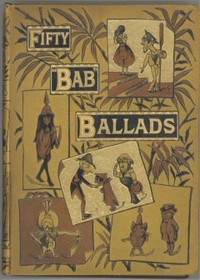Ballad: Gentle Alice Brown
byGentle Alice Brown opens with a contrast that sets the tone for the entire tale. She is described as kind and demure, yet her family background is anything but gentle. Her father is a notorious robber, feared in their little Italian village, and her mother is no stranger to criminal behavior either. Despite this, Alice remains composed, her heart quietly yearning for the sight of a handsome man from the Customs House who strolls past their home. She watches him with fascination, not out of lust or desire for mischief, but from a place of innocent admiration. This humorous setup introduces the underlying theme: how societal roles often clash with personal identity. The humor in Alice’s restrained rebellion is subtle, grounded in her trying to escape the family’s criminal legacy not through confrontation, but through daydreams and secret smiles.
When Alice confesses her many sins to the village priest, her list is long and improbable. She admits to crimes like theft, blackmail, and more, all with a surprising level of cheer. Yet the priest, Father Paul, is not disturbed by the weight of her confessions. Instead, he focuses on the cost of absolution, listing prices for each sin as if running a market stall. This absurd transaction turns what should be a spiritual moment into a comical exchange, poking fun at how indulgences were historically granted by the church. Alice’s response is one of appreciation rather than repentance, finding joy in the idea that her more outrageous acts are quite affordable to forgive. The satire deepens when she mentions her love for the Customs officer—not as a sin, but as a personal truth. This admission, unlike the rest, is the only thing that genuinely shocks Father Paul, revealing where the real priorities lie in this upside-down moral world.
Alarmed by the possibility that Alice might abandon her family’s traditions for something so tame as affection, Father Paul decides to inform Robber Brown. Here, the ballad tilts fully into farce. Robber Brown is outraged—not by Alice’s long list of actual crimes, but by her romantic interest in a humble government worker. He believes this romance threatens the future of their criminal lineage and even the priest’s own stream of confession-related income. His reaction is theatrical and grotesque: he plots to murder the young man in a wildly over-the-top way, involving acid, knives, and fire, not just to eliminate him but to traumatize Alice into abandoning any future thoughts of love. The hyperbole isn’t there just for laughs—it points to how irrationally extreme some responses to social defiance can be. Through this, the ballad critiques both blind loyalty to familial legacy and the absurd expectations placed on women within such structures.
But it is Mrs. Brown who unexpectedly steals the spotlight in the final act. Her solution is swift and disturbingly effective: she poisons the sorter without hesitation, sealing Alice’s fate with a brutal finality that’s almost casual in its delivery. It’s a chilling moment, not because of its violence, but because of how normalized such brutality is within the family. The moment underlines the ballad’s message—Alice’s dream of love was never going to survive in a household where crime is more valued than compassion. What starts as a seemingly innocent romantic fancy ends with bloodshed, showing the futility of tenderness in a world dominated by absurd cruelty and tradition. Yet, the tone throughout remains buoyant and sardonic, leaving the reader amused and appalled in equal measure.
The genius of Gentle Alice Brown lies in how it wraps its dark critique in light rhymes and playful rhythm. Beneath the charm is a sharp rebuke of institutionalized corruption, from the church’s transactional forgiveness to a family’s willingness to kill for the sake of reputation. Alice, whose only true “sin” is to love someone decent, becomes a victim of a system more invested in preserving dysfunction than allowing change. Readers can’t help but laugh, but the laughter is uneasy—laced with the understanding that satire often reveals truths too ugly to address plainly. In the end, Alice’s gentleness is crushed under the weight of expectation, and her family’s commitment to crime is protected, though at a grotesque cost. This grim irony is what gives the ballad its lasting bite and enduring cleverness.

